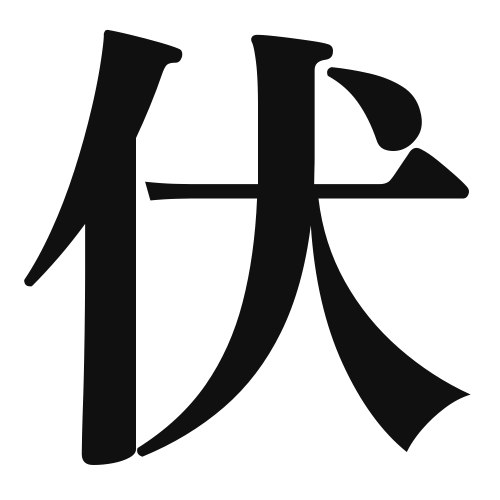1. Overview of Meaning
The kanji “伏” (fuku) primarily means “to lie down” or “to crouch.” It can also imply submission or hiding, often used in contexts where something is concealed or lowered.
2. Formation and Radical
Formation of the Kanji: The kanji “伏” is a phono-semantic compound (形声文字), which combines a phonetic component and a semantic component. The left part, “亻” (the radical for person), suggests a human action, while the right part, “伏,” indicates the action of lying down.
Radical: The radical for “伏” is “亻,” which relates to human actions or behaviors.
3. Examples of Usage
Common Words and Phrases:
- 伏せる (fuseru) – to lay down, to turn over
- 伏兵 (fukubee) – ambush troops
Example Sentences in Daily Conversation:
- 犬が伏せている。 (Inu ga fusete iru.) – The dog is lying down.
- 彼は伏せている問題を解決しなければならない。 (Kare wa fusete iru mondai o kaiketsu shinakereba naranai.) – He must solve the hidden problem.
4. Synonyms and Antonyms
Similar Kanji:
- 隠 (in) – to hide; while “伏” implies lying down or submission, “隠” focuses more on concealment.
Antonyms:
- 立 (tatsu) – to stand; this represents the opposite action of lying down.
5. Cultural and Historical Background
Relation to Japanese Culture: The concept of “伏” is often associated with humility and submission in Japanese culture, reflecting values of respect and deference.
Proverbs and Idioms:
- 伏して待つ (fushite matsu) – to wait patiently, often implying a humble or submissive stance.
